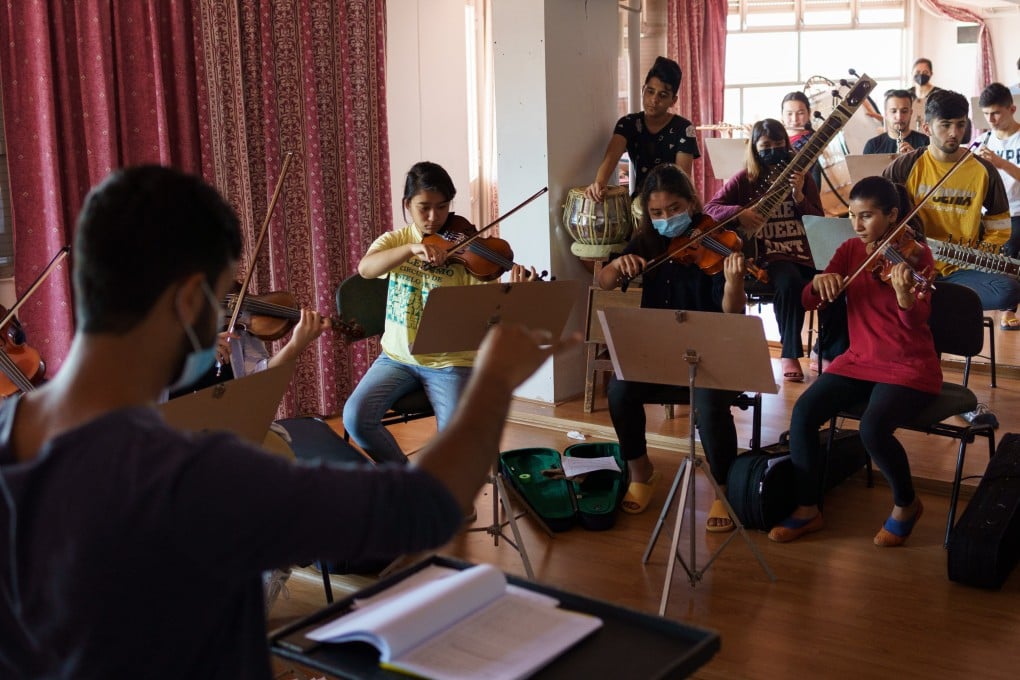Young Afghan musicians who fled the Taliban’s ban on music struggle to keep their traditions alive
- With music now forbidden across Afghanistan, young members of the Afghanistan National Institute of Music fled to Portugal, where they found new problems

With a plane passing overhead every five minutes or so, 18-year-old Sevinch Majidi was constantly reminded that her three brothers, sister and parents were thousands of kilometres from the former military hospital near Lisbon’s international airport that became her home when she arrived in Portugal in December 2021.
The squat, hillside hospital and its surroundings provide breathtaking views of the Tagus River, but the property had been poorly maintained and its long corridors and big, empty rooms felt cold, until the rhythms of a tabla or the drone of a dambura warmed the space. The hallways were decorated with students’ drawings: a piano, a trumpet, a few heart shapes, a girl with her hair waving in the wind and a Portuguese flag.
Fleeing the Taliban takeover of Kabul in the summer of 2021, Majidi was one of 273 members of the Afghanistan National Institute of Music (ANIM) who were evacuated from Kabul to Doha, in Qatar, in late 2021, before being eventually flown to the Iberian Peninsula, where they were welcomed by the Portuguese government.
Qatar was crucial to the evacuation, providing aircraft, diplomatic assistance and temporary accommodation. Other key backers included renowned artists, such as cellist Yo-Yo Ma, United States House Speaker Nancy Pelosi, philanthropists, military veterans and pro bono lawyers.
More than 100 members of the ANIM group were students, a quarter of whom were girls, mostly aged 16 to 19 years old, a few as young as 13, almost all travelling without their families. The minors and students were allocated to the former military hospital, and the rest were divided between two refugee centres elsewhere in the city.
Now finally safe in Europe, Majidi can play the violin wherever she wants, whereas in Afghanistan, as the concertmaster of Zohra – the first all-female orchestra in Afghanistan and a celebrated ensemble at ANIM – she would be risking her life by playing under the Taliban, whose Islamic law forbids music.
